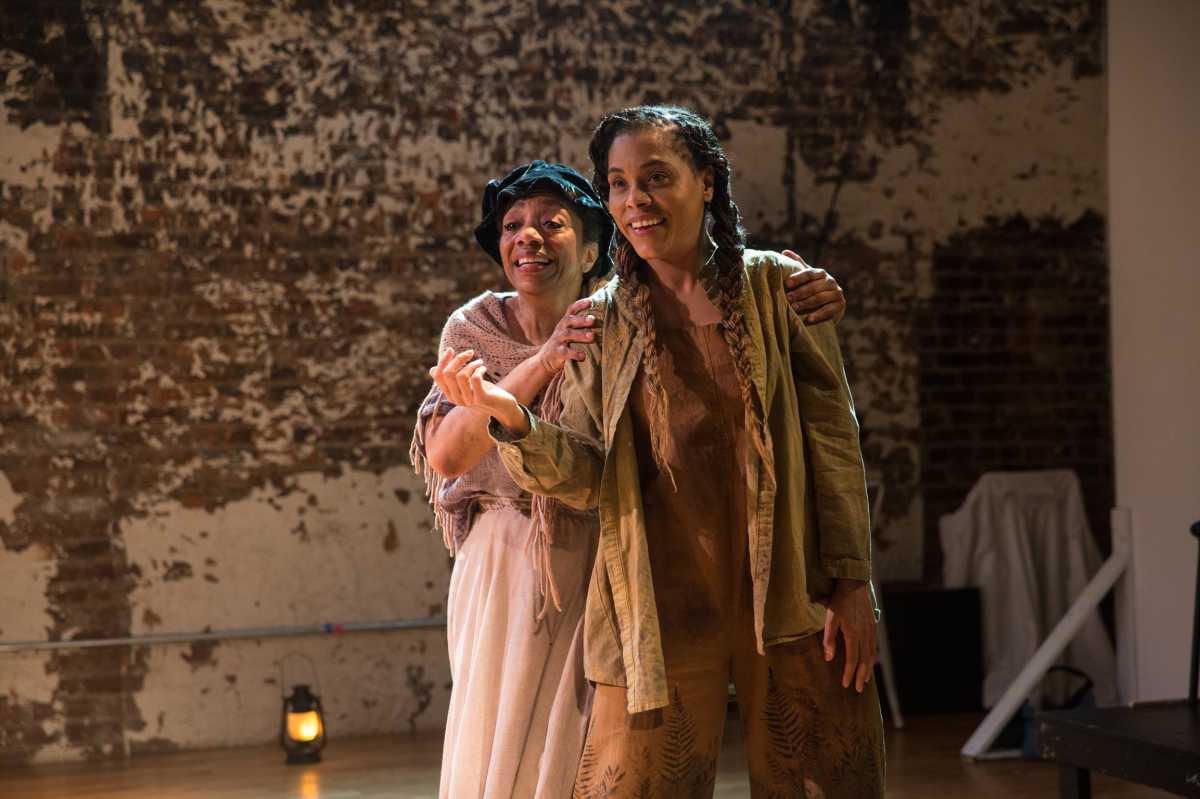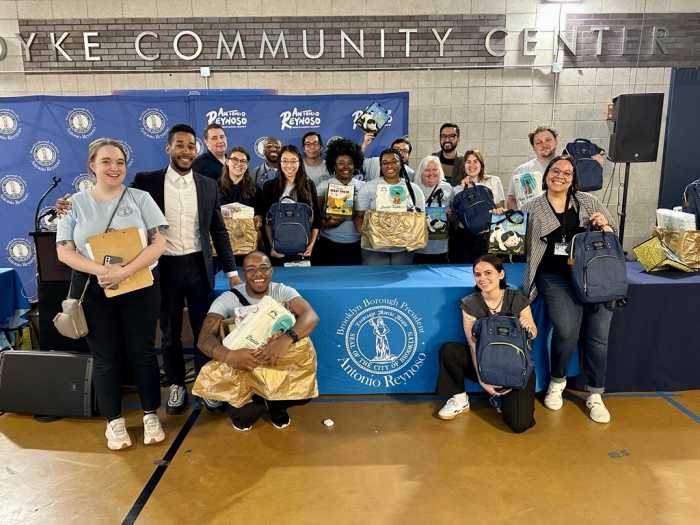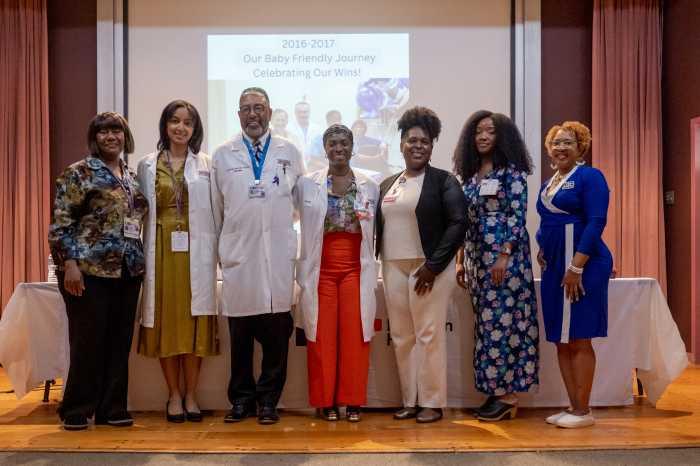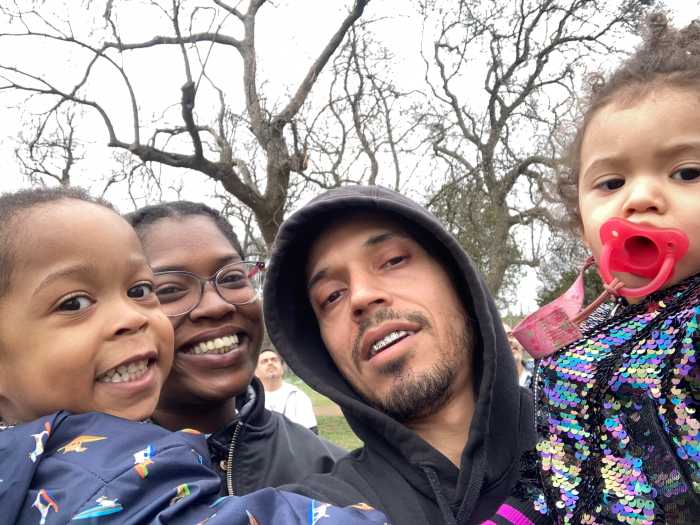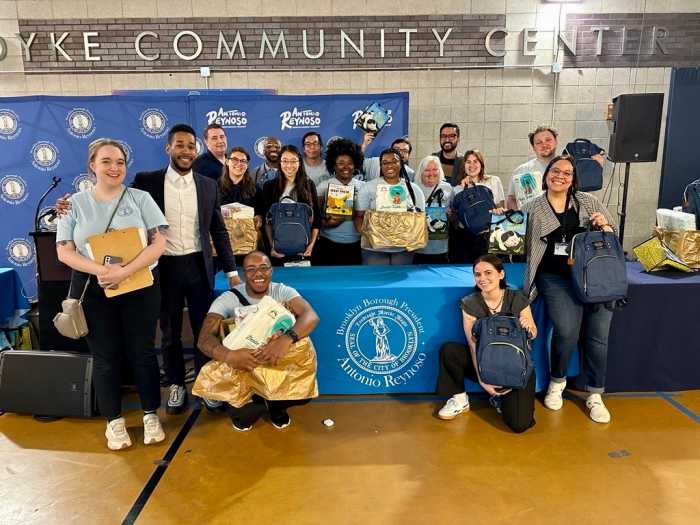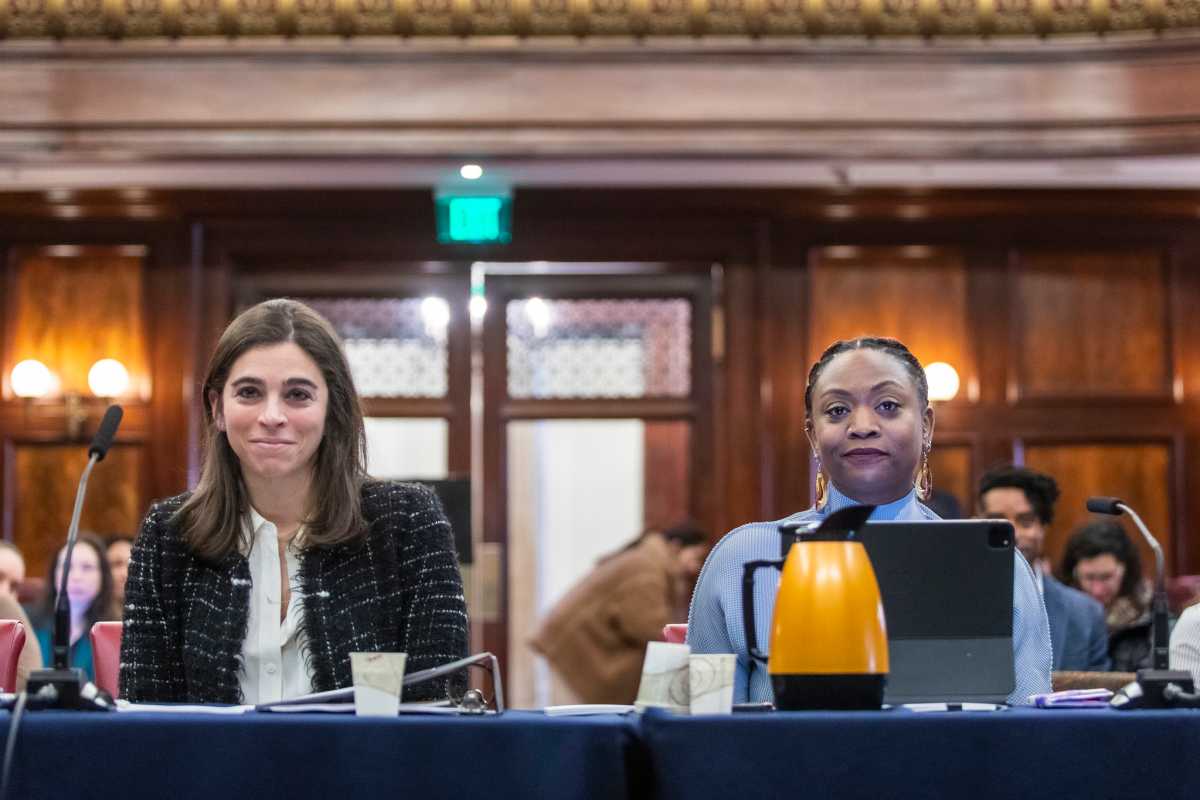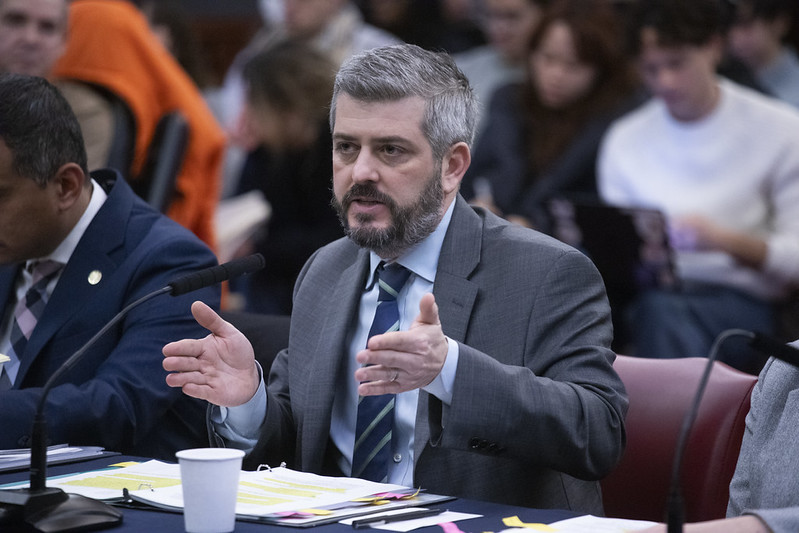After performances in Indiana, Florida, and New Jersey, the new play “axes, herbs, and satchels: open the archives” is now on tour in New York City. The play, by theater group The Anthropologist, addresses the Black and Brown maternal mortality crisis while unearthing the erased history of Black midwives.
For 17 years, The Anthropologist, an all-women-led investigative theater, has created plays rooted in research and cultural artifacts, uncovering stories that have either been lost or suppressed. “axes, herbs, and satchels: open the archives” addresses the systemic racism in the healthcare system and the critical part Black midwives and doulas play in a positive birthing experience and outcome in the Black and Brown community.
The play made its first local stop Brooklyn on April 16. The borough has the second-highest pregnancy rate of the five boroughs, and the highest number of pregnancy-related deaths, according to the latest city data.
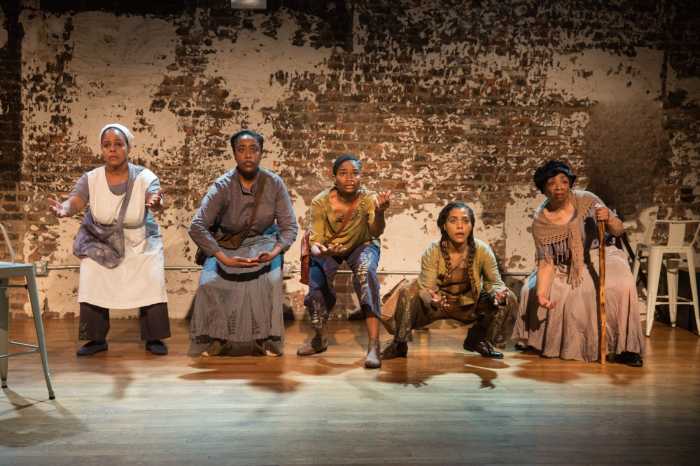
Black and Brown birthing people in the United States are more than three times more likely than their white counterparts , studies show. In 2023, the maternal mortality rate for Black women in the U.S. was 50.3 deaths per 100,000 live births compared to 14.5 deaths per 100,000 live births for white women, according to a report by the federal Centers for Disease Control.
The Anthropologist’s founding artistic director, Melissa Moschitto, who co-directed and co-wrote the play with Sandie Luna, told Brooklyn Paper the seed for the story was planted when the group debuted “No Pants In Tucson” — a play about reproductive health and bodily autonomy — in 2021.
“Part of that research process started to uncover these natural remedies and knowledge that was held within the African American community, specifically with midwives,” Moschitto explained. “We were curious about the role of doulas and midwives, but it became very clear that it was important for this project to center the voices of Black midwives and the experience of Black birthing people.”
Until the 1930s, Black midwives provided prenatal care to Black and white women, using practices passed down through generations, incorporating African traditions of rituals and homeopathic remedies to their patients. “Granny Midwives,” as they were often called, provided physical and emotional support, maintained a hygienic space, administered medicine, monitored the mother throughout the birthing process, and shared their knowledge with new generations through apprenticeships.
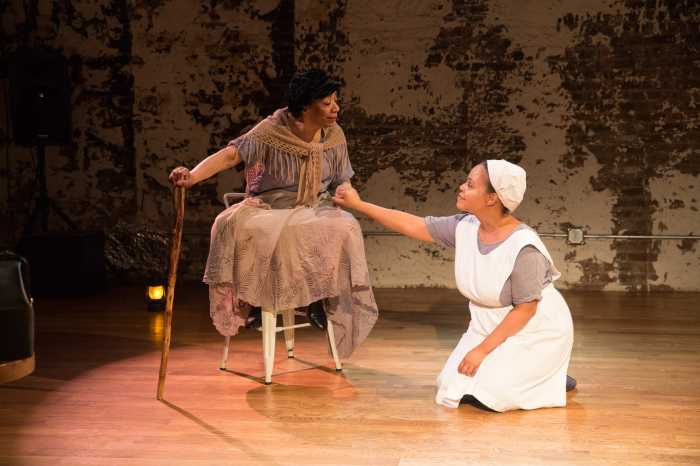
With a shift towards a profit-driven medical system, their roles changed when white male obstetricians deemed Black midwives as “dangerous and offensive” and excluded them from attending births.
“There was a smear campaign against [Black midwives] so that the white male doctors who became obstetricians could take over the field of birthing,” Moschitto said.
The play intertwines the stories of Kamara, a journalist who loses a sister to childbirth, and Alice, who started her career as an apprentice midwife in 1922 and worked until 1977. Both years play an important role in the erasure of ancestral midwifery.
In 1921, the U.S. Congress passed the Sheppard-Towner Act, which provided federal funding to lower maternal and infant mortality, especially in rural areas. But while the bill created training programs and clinics, it also dismantled the Black midwife community in the South and pushed traditional Black midwives out of the profession.
In 1977, the last generation of “lay midwives” was forcibly retired nationwide, Moschitto said. In the play, Kamara seeks the Black midwife’s wisdom, which might have saved her sister’s life. On her journey through time, she rediscovers the ancestors’ wisdom to reclaim the future.
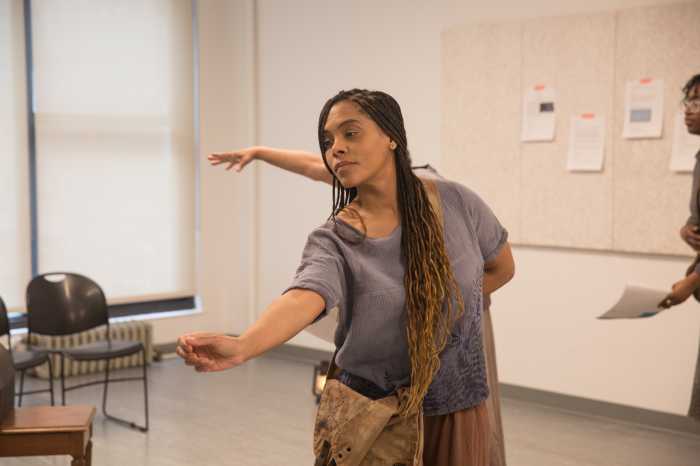
“axes, herbs and satchels” addresses the systematic dismantling of the Black midwifery tradition and its effect on the Black maternal health crisis, and Moschitto hopes the play elevates the value of Black midwives. The keys to solving and improving the “man-made” Black maternal health care crisis, Moschitto said, lay in the history and tradition of Black Midwifery.
“[Black midwives] are incredibly valuable. We need them, and when Black birthing bodies are safe and have good healthy outcomes, that means that everybody across the board is safer,” she said.
Even though the practice of midwifery has its roots in Black, Indigenous, and immigrant communities and modern medicine recognizes the importance of midwives — midwifery is proven to result in lower C-section rates and preterm births — the number of certified nurse-midwives and certified midwives identifying as Black or African American is only 7%, according to a report published by the American Midwifery Certification Board.
As a result, birthing people in their communities may have less access to birthing care and birthing environments that feel safe and comfortable.
Nadia N. Mbonde is the theatre’s current anthropologist-in-residence and a Ph.D. Candidate in Sociocultural Anthropology at New York University. Her research addresses how perinatal mental health disparities contribute to the ongoing Black maternal mortality and morbidity crisis in the United States.
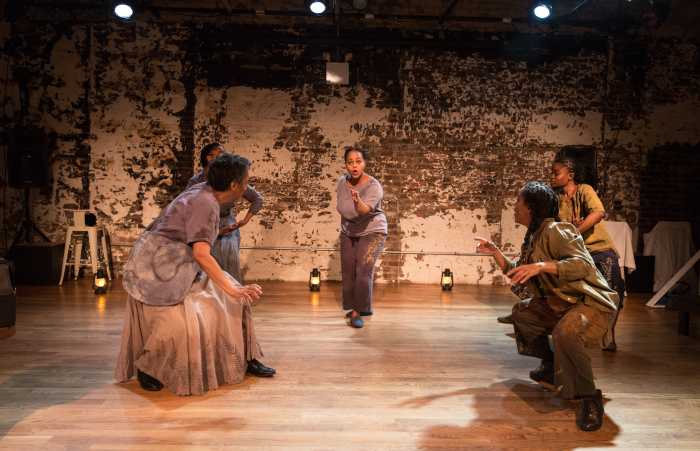
Mbonde said the production highlights how obstetricians appropriated Black midwives’ techniques, and that because of the requirement for midwives to become certified, the field became increasingly white.
“As a result of this, the Black maternal mortality rate has been increasing,” Mbonde said.
The play connects the past with the present and explores how the traditional knowledge of Black midwives could be the answer to the alarmingly high rates of maternal death among Black women and birthing people.
“I think the way in which the play tracks these different time periods connects this history of the erasure of midwifery to the Black maternal mortality crisis today and how there’s a lot of profit incentives,” Mbonde explained. “The play explicitly shows how the crisis we are in is a product of the decisions that had been made and the priorities this country has, and the kind of disposability of Black bodies.”
“axes, herbs, and satchels: open the archives” ran in Brooklyn from April 16-19, and has additional performances scheduled for May 1 in Manhattan and May 9-11 at the Tiffany Street Theater in the Bronx.


